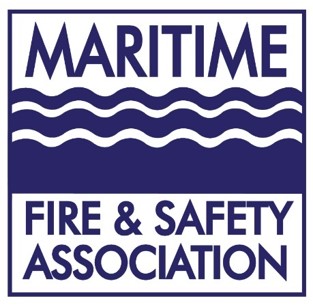What’s Happening: Oil Spill Response & Preparedness
The Maritime Fire & Safety Association’s mission is to be the leading provider and advocate of safe, environmentally responsible, and cost-effective response services to commercial vessels in the Columbia Willamette River Marine Transportation System.
A crucial part of meeting that challenge is maintaining a strong working relationship with the various stakeholders and partners in our industry and region. One of the ways we perform that outreach is our Oil Spill Response and Preparedness Committee (OSRPC). This group had its start in the founding days of our Contingency Plan—as an ad hoc group of ports, agents, operators, regulators and industry.
The OSRPC meets six times a year and the agenda includes discussion of recent pollution events, updates from ports, industry, agencies and pilots on their recent and upcoming activities, especially as they support preparedness.
Our current industry members are:
- Cale Karrick, Transmarine – Chair
- Sean Clark, Port of Columbia County
- Capt. Steve Dobbins, Columbia River Pilots
- Carl Bertapelle, Talon Marine
- Bowman Harvey, Olympic Tug & Barge
- Ross McDonald, Sause Bros.
- Ken Mishler, Port of Vancouver
- Kate Mickelson, CRSOA
- Richard Vincent, Port of Portland
- Mark Price, Port of Longview
Representatives from the USCG, Oregon DEQ and Washington DOE also participate. MFSA staff, MFSA contracted Interim Spill Response Coordinators and Clean Rivers Cooperative personnel round out the group. For more information on the OSRPC or the MFSA Vessel Contingency Plan, please go to our website at www.mfsa.com.
What’s New: Oregon DEQ Fee Increase
The Oregon State Department of Environmental Quality operates its state Oil Spill Contingency Planning department on a biannual budget, funded by fees from commercial vessels, petroleum tank barges and facilities that transfer petroleum over water. Their fees were last increased in 2015 and were expected to fund the program for four to six years. However, the program faces funding challenges, such as how to prepare for new types of oil products and trends in oil transport.
To meet these challenges, the Oregon legislature has approved a significant fee increase, effective October 1st, 2019. This budget will allow DEQ to better support its Contingency Planning program by improvements such as increased participation with plan holder’s training and drills and additional cross training for staff.
For more information, they have published an information sheet on the bill. Also, DEQ publishes an Annual Report on the Oil Contingency Program that details their activities. For questions on the MFSA Plan, contact
MFSA General Manager Holly Robinson at (503) 220-2099.
MFSA Plan: Threat of a Spill
The MFSA Plan is an Umbrella Vessel Response Plan that meets state regulations and planning standards for Washington and Oregon. One of the state reporting requirements that causes confusion is that for Threat of a Spill reporting.
Substantial Threat of Spill: a “vessel emergency” is defined as a substantial threat of pollution originating from a vessel, including loss or serious degradation of propulsion, steering, means of navigation, primary electrical generating capability, and seakeeping capability.
The purpose of this reporting is so that agencies and responders are aware of a vessel emergency with potential for a spill and can be ready to act.
If your vessel has experienced an emergency such as a grounding, loss of propulsion, loss of steering, or collision, please be aware of your requirements under state law. Follow the information provided on the MFSA Field Guide.
If you have any questions regarding the definition of a threat of a spill of the appropriate actions, contact the MFSA General Manager, Holly Robinson, at robinson@pdxmex.com or (503) 220-2099.
